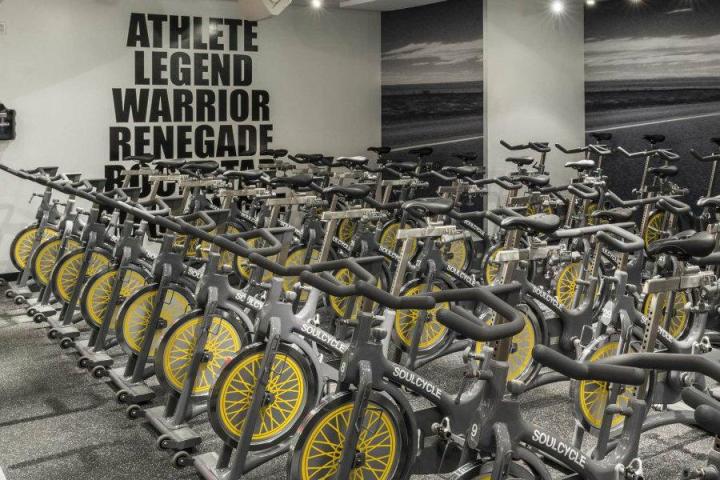
While those in charge of collecting music royalty fees always look high and low for new revenue streams, one music exec believes they’re missing out on significant funds from an unusual source: your local spin class.
Andrew Sparkler, the VP of Business Affairs at Downtown Publishing (and a former exec for music rights agency ASCAP), has penned an op-ed stating he believes that gyms, and their many fitness classes that rely on pumped-up musical soundtracks, exploit the songs they play more than concert venues, bars, and restaurants. And in Sparkler’s mind, that means they should fork out more cash.
Using popular spin class brand SoulCycle as an example, Sparkler explains that the services rely heavily on carefully curated music and should be subject to more expensive licensing fees than the “general” price.
Sparkler supported his argument using SoulCycle’s recent SEC filing, according to Billboard. The company called its product “a carefully curated ‘cardio party’ [that] is fueled by the personalities of our instructors, their uniquely crafted musical playlists and the energy of the room.”
Fitness clubs currently pay just a nominal fee to play copyrighted music. For example, performance rights organization BMI caps its per-venue license at a maximum of $2,123, according to the report. The blanket license gives the venue the right to play unlimited music, regardless of how many people are listening.
Based on SoulCycle’s SEC filing, Sparkler concludes that each SoulCycle location generates about $3.1 million in revenue, and believes that copyright holders are owed a larger chunk of that cash.
Sparkler also asks performance rights organizations (PROs) to reconsider how they divvy up funds from “general” licensing revenues, saying that the current methods do not fairly compensate less popular artists. He says that fees are “distributed using a number of inaccurate proxies… that overwhelmingly favors ‘Top 40’ hits,” according to the report. “Continuing to distribute these license fees by following a homogenized pop radio chart defies logic and underserves the vast majority of PRO affiliate songwriters and publishers.”
While Sparkler realizes collecting more royalties from SoulCycle and other fitness centers isn’t going to reshape the music industry, he believes that the additional revenue would make a significant difference to songwriters, who have been struggling to earn revenue in the streaming era.
It’s unclear whether performance rights organizations will take to his advice, but it’s certainly an innovative way for rights holders to bring in more money. If your spin class suddenly jacks up the rates — or stops playing music altogether — sometime down the line, you may have Andrew Sparkler to blame.
Editors' Recommendations
- What is YouTube Music? Everything you need to know
- Spotify just made live music a little bit better
- LG brings Apple TV, Apple Music, and AirPlay to webOS Hub-based TVs
- Bose Music Amplifier takes a direct shot at the Sonos Amp
- Apple Music is now available on Roku


